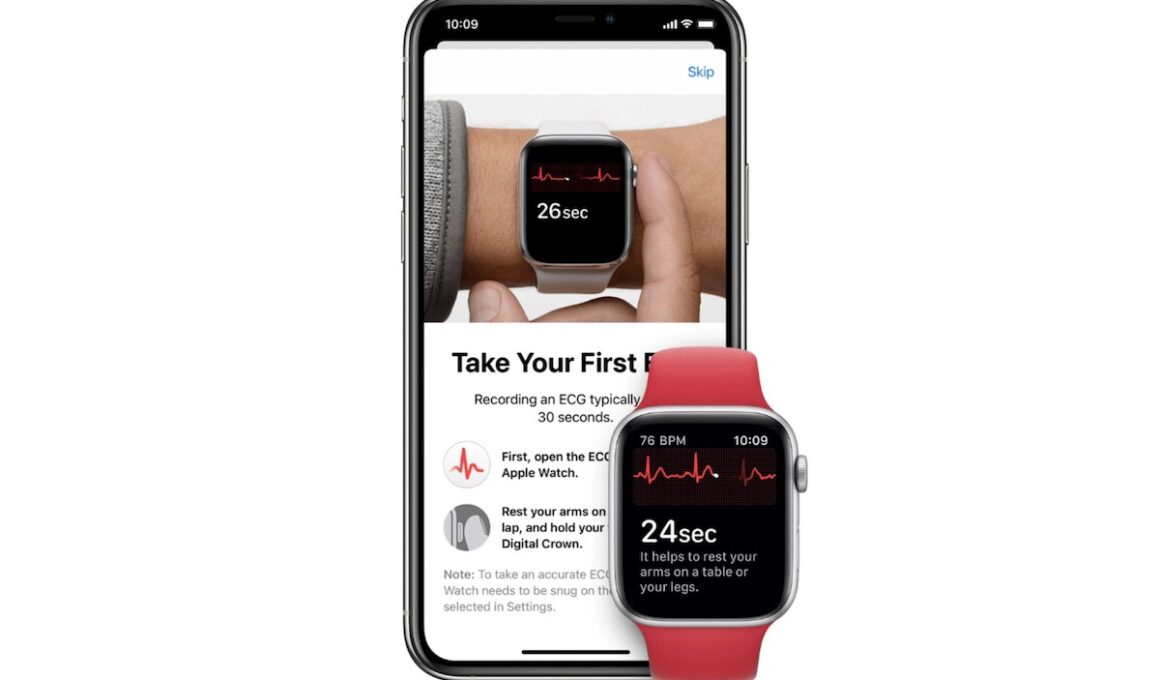Mayo Clinic News Network
By Terri Malloy
May 2, 2022
Single-lead ECG tracings from an Apple Watch interpreted by an artificial intelligence (AI) algorithm developed at Mayo Clinic effectively identified patients with a weak heart pump.
Patients were enrolled by email in a decentralized, prospective study. Then they downloaded an app that securely transferred watch ECGs in the background.
Study participation was high, demonstrating the possibility for a scalable tool to be developed to screen and monitor heart patients for this condition wherever they are.
The study abstract was presented as late-breaking research at the Heart Rhythm Society conference on Sunday, May 1.
“ Left ventricular dysfunction — a weak heart pump — afflicts 2% to 3% of people globally and up to 9% of people over age 60. It may have no symptoms, or be associated with shortness of breath, leg swelling or racing heart beats.
What is important is that once we know a weak heart pump is present, there are many lifesaving and symptom-preventing treatments available. It is absolutely remarkable that AI transforms a consumer watch ECG signal into a detector of this condition, which would normally require an expensive, sophisticated imaging test, such as an echocardiogram, CT scan or MRI,” says Paul Friedman, M.D., chair of the Department of Cardiovascular Medicine at Mayo Clinic in Rochester.
Watch: Dr. Paul Friedman discusses AI to detect weak heart pump. Journalists: Broadcast-quality soundbites are in the downloads at the end of the post. Please “Courtesy: Mayo Clinic News Network.”
A standard ECG uses 12 electrode leads strategically placed on a person’s chest, arms and legs to create a tracing used to evaluate the heart’s electrical signals.
To interpret ECG signals generated from the single lead on an Apple Watch, researchers modified an established 12-lead algorithm for low ventricular ejection fraction — the weak heart pump — that is licensed to Anumana Inc., an AI-driven health technology company, by nference and Mayo Clinic.
Previous Mayo research showed that the 12-lead ECG and AI algorithm can identify a weak heart pump, and that this information is useful to clinicians in an office setting.
The 12-lead ECG algorithm was awarded breakthrough device designation by the Food and Drug Administration in 2019 and emergency use authorization for COVID-19 in 2020.
To adapt the 12-lead algorithm to work with a single lead watch signal, Itzhak Zachi Attia, Ph.D., the lead AI scientist in the Department of Cardiovascular Medicine at Mayo Clinic, created an adaptation technique that translated the single-lead readings into signals understandable by the algorithm. Dr. Attia is co-director of Artificial Intelligence in the Department of Cardiovascular Medicine.
Participants securely transmitted 125,610 ECGs from 46 states and 11 countries over the six-month study period.
The average app use was about two times a month.
Overall participation was high, as 92% used the app more than once. Each patient recorded many ECGs, and researchers chose the cleanest readings.
“Approximately 420 patients had a watch ECG recorded within 30 days of a clinically ordered echocardiogram, or ultrasound of the heart, a standard test to measure pump strength.
We took advantage of those data to see whether we could identify a weak heart pump with AI analysis of the watch ECG.
While our data are early, the test had an area under the curve of 0.88, meaning it is as good as or slightly better than a medical treadmill test.
AI analysis of the watch ECG is a powerful test to identify a weak heart pump,” says Dr. Attia.
The researchers worked with Mayo Clinic’s Center for Digital Health to develop the smartphone app that study participants used to send single lead ECGs from their Apple Watch.
A total of 2,454 Mayo Clinic patients with an iPhone, the Mayo Clinic App and a series 4 or later Apple Watch took part in the study.
The app securely sent all previous watch ECGs and additional ones as they were recorded by patients to a Mayo secure data platform. There they were analyzed.
“The ongoing AI research in cardiology is part of Mayo’s commitment to bringing a digital transformation to health care.
Advanced diagnostics that once required travel to a clinic can be accurately done, as this Apple Watch ECG study demonstrates, from a patient’s wrist whether they live in Brazil or Baton Rouge.
App-based access to a medical center can help address health disparities by making high-level diagnostics accessible to more people in real time,” says Bradley Leibovich, M.D., medical director of Mayo Clinic’s Center for Digital Health.
“This test is the first step, as it demonstrates we can get medically useful information from a single-lead watch.
Our next steps include global prospective studies to test this prospectively in more diverse populations and demonstrate medical benefit.
This is what the transformation of medicine looks like: inexpensively diagnosing serious disease from your sofa,” says Dr. Friedman.
This is what the transformation of medicine looks like: inexpensively diagnosing serious disease from your sofa,” says Dr. Friedman.
This study was funded by Mayo Clinic. Apple did not provide technical or financial support. Drs. Attia and Friedman, along with others, are co-inventors of the low ejection fraction algorithm licensed to Anumana and may benefit from its commercialization.
Originally published at https://newsnetwork.mayoclinic.org on May 2, 2022.
Names mentioned
Paul Friedman, M.D., chair of the Department of Cardiovascular Medicine at Mayo Clinic in Rochester.
Itzhak Zachi Attia, Ph.D., the lead AI scientist in the Department of Cardiovascular Medicine at Mayo Clinic,
Heart Rhythm Society












